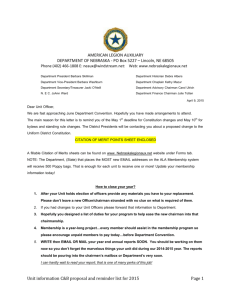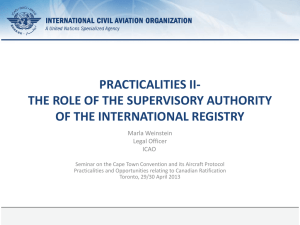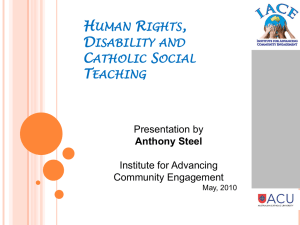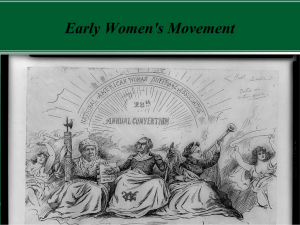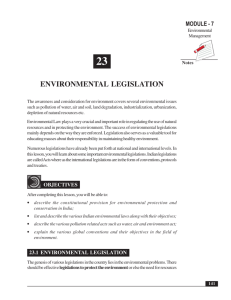Torino seminar programme
advertisement
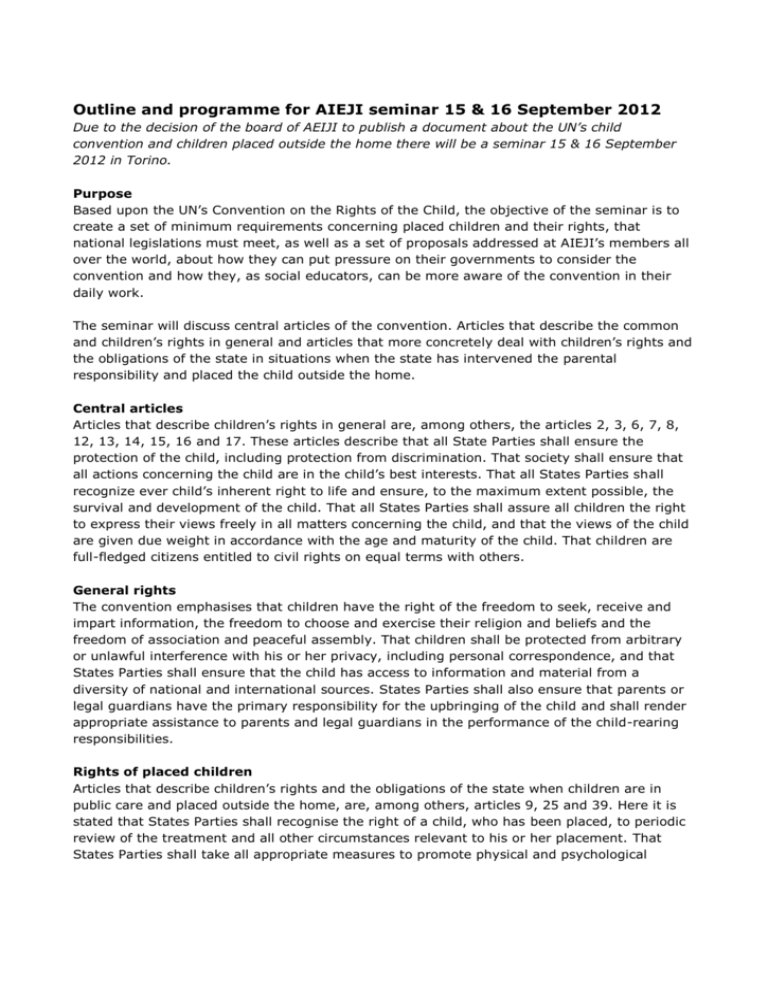
Outline and programme for AIEJI seminar 15 & 16 September 2012 Due to the decision of the board of AEIJI to publish a document about the UN’s child convention and children placed outside the home there will be a seminar 15 & 16 September 2012 in Torino. Purpose Based upon the UN’s Convention on the Rights of the Child, the objective of the seminar is to create a set of minimum requirements concerning placed children and their rights, that national legislations must meet, as well as a set of proposals addressed at AIEJI’s members all over the world, about how they can put pressure on their governments to consider the convention and how they, as social educators, can be more aware of the convention in their daily work. The seminar will discuss central articles of the convention. Articles that describe the common and children’s rights in general and articles that more concretely deal with children’s rights and the obligations of the state in situations when the state has intervened the parental responsibility and placed the child outside the home. Central articles Articles that describe children’s rights in general are, among others, the articles 2, 3, 6, 7, 8, 12, 13, 14, 15, 16 and 17. These articles describe that all State Parties shall ensure the protection of the child, including protection from discrimination. That society shall ensure that all actions concerning the child are in the child’s best interests. That all States Parties shall recognize ever child’s inherent right to life and ensure, to the maximum extent possible, the survival and development of the child. That all States Parties shall assure all children the right to express their views freely in all matters concerning the child, and that the views of the child are given due weight in accordance with the age and maturity of the child. That children are full-fledged citizens entitled to civil rights on equal terms with others. General rights The convention emphasises that children have the right of the freedom to seek, receive and impart information, the freedom to choose and exercise their religion and beliefs and the freedom of association and peaceful assembly. That children shall be protected from arbitrary or unlawful interference with his or her privacy, including personal correspondence, and that States Parties shall ensure that the child has access to information and material from a diversity of national and international sources. States Parties shall also ensure that parents or legal guardians have the primary responsibility for the upbringing of the child and shall render appropriate assistance to parents and legal guardians in the performance of the child-rearing responsibilities. Rights of placed children Articles that describe children’s rights and the obligations of the state when children are in public care and placed outside the home, are, among others, articles 9, 25 and 39. Here it is stated that States Parties shall recognise the right of a child, who has been placed, to periodic review of the treatment and all other circumstances relevant to his or her placement. That States Parties shall take all appropriate measures to promote physical and psychological recovery and social reintegration of a child who has experienced neglect, exploitation or any other kind of abuse. Discussions A key point in the discussion will be how and to which extent the States Parties ensure that the general rights to protection, development and inclusion are considered also in the case of placed children. What does it require from the States Parties if they are to ensure placed children these general rights? What does it require from the national legislations and their wordings? Another key point for discussion will be how the member of AIEJI on a local level, and at the work places, can direct attention towards the rights of placed children and how to make sure these rights are considered and respected. Outcome In the light of these discussions, the seminar will compose a set of minimum requirements of the States Parties and their national legislations and governments regarding ensuring the rights of placed children, as well as a set of proposals to the members of AIEJI about how to locally promote children’s rights. Programme Day 1 09.30 – 10.00 Welcome by Benny Andersen – why this seminar, presentation of the programme and the participants 10.00 – 10.45 Presentation of “The child perspective and the perspective of the child” by Ellen Galaasen 10.45 – 11.00 Break 11.00 – 11.45 Presentation of central articles of the UN convention by Dea Engberg 11.45 – 12.00 Break 12.00 – 13.00 Examples from national legislations describing children’s rights – Denmark, Switzerland, Italy. 13.00 – 14.00 Lunch 14.00 – 15.00 Group discussions: What minimum standards should a national legislation include in terms of ensuring children’s rights? 15.00 – 15.15 Break 15.15 – 16.45 Re-cap on group discussions: Presentations from the groups, composing 5 minimum requirements of the states and their national legislations. 16.45 – 17.00 Closing Day 2 10.00 – 10.15 Welcome, presentation of day programme and practical information by Thomas Vollmer 10.15 – 11.00 Group discussions: How can social educators at a local level strengthen and promote children’s rights – also towards local governments? 11.00 – 11.15 Break 11.15 – 12.15 Group discussions: What does the convention mean for the daily practice and role of social educators working with children placed outside the home? 12.15 – 12.45 Re-cap and composing 5 recommendations about raising local awareness of children’s rights and ensuring that daily practice within the given circumstances respect the convention. 12.45 – 13.00 Closing




